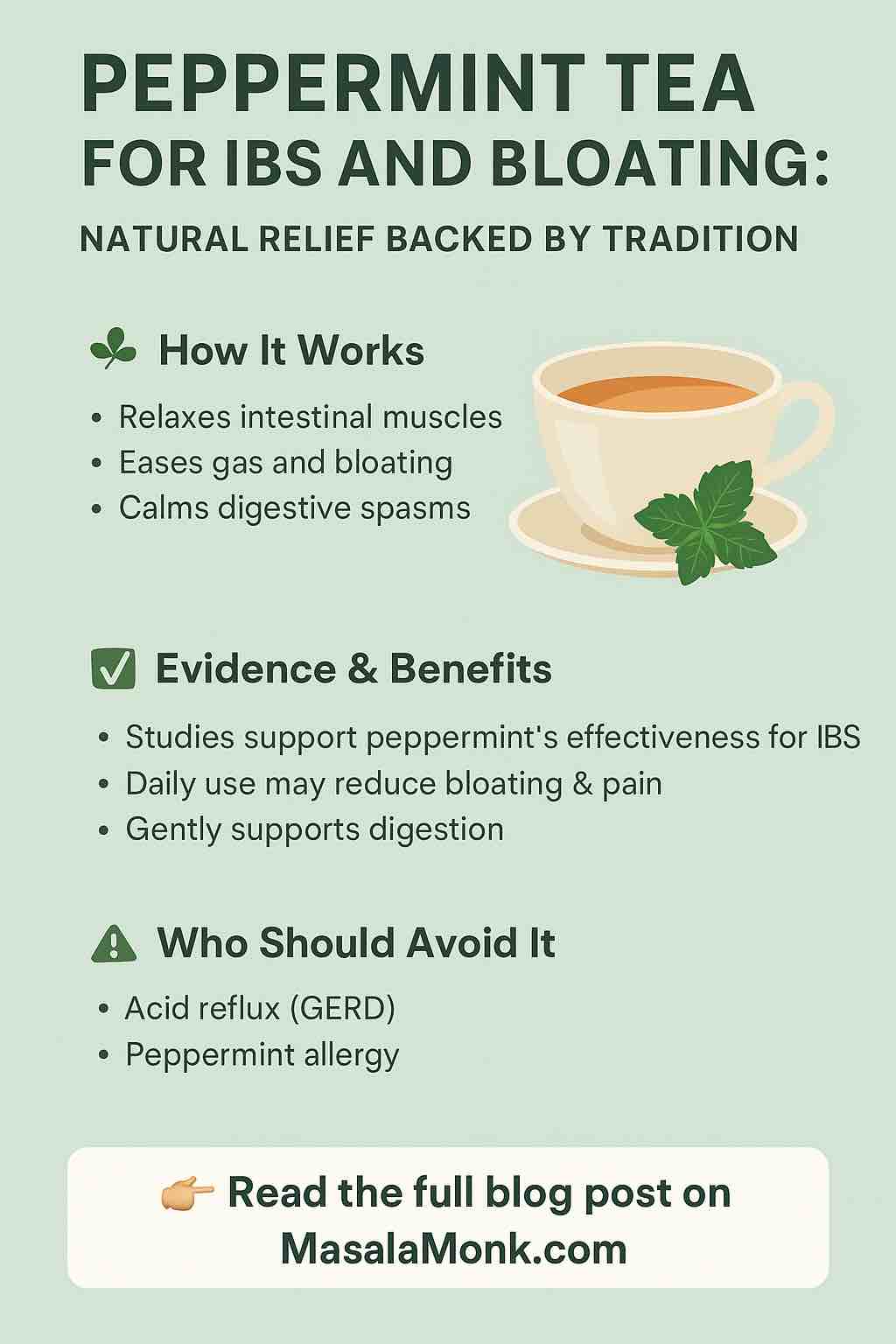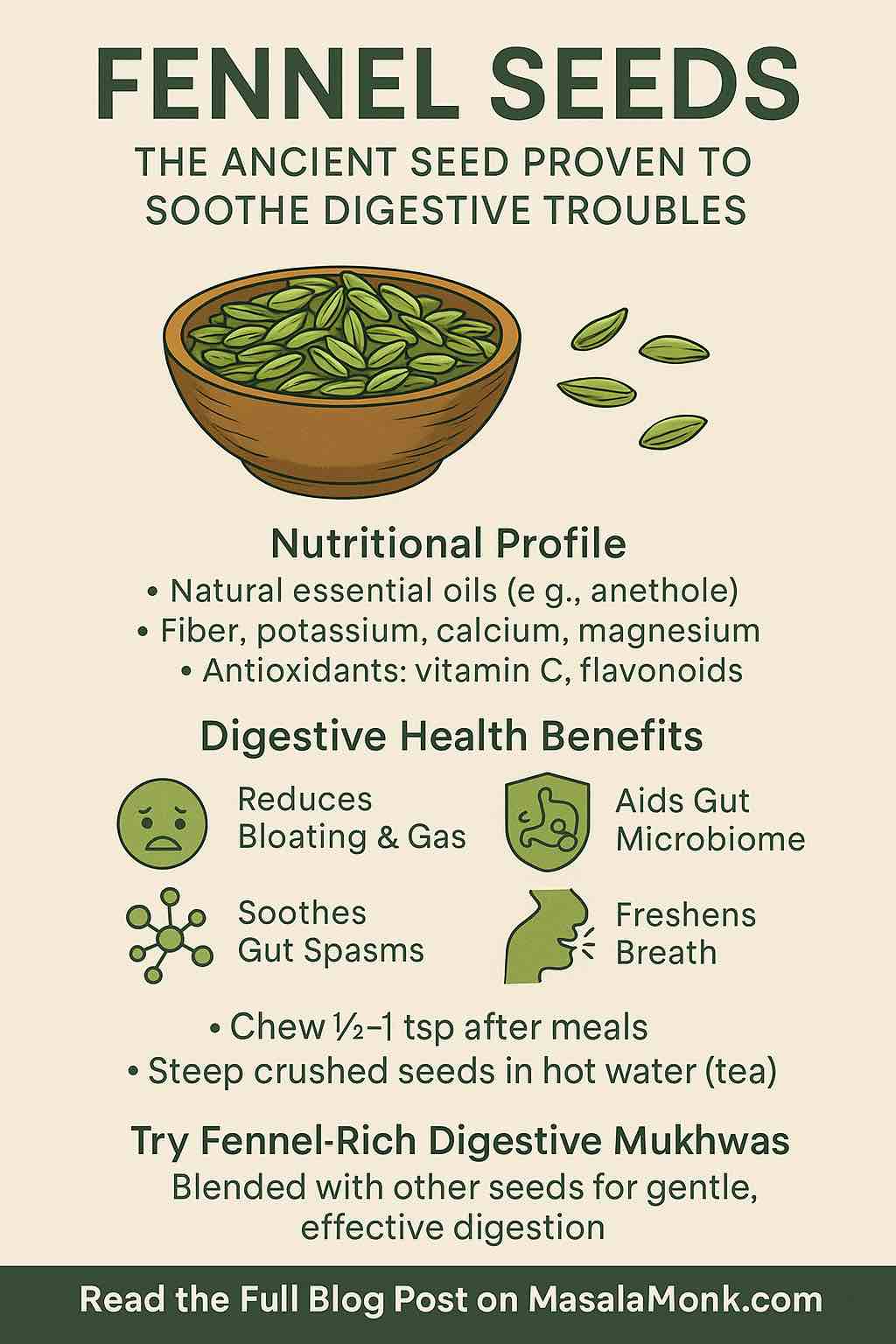
If you’re tired of bloating, stomach discomfort, or battling IBS symptoms, peppermint tea might be the gentle herbal ally your gut has been waiting for. Backed by ancient wisdom and now validated by modern science, peppermint isn’t just a refreshing flavor—it’s a natural digestive soother.
In this guide, we’ll unpack:
- The science behind peppermint’s gut-calming powers
- How it’s been used for centuries in traditional medicine
- Practical tips to brew the perfect cup
- Why peppermint tea (not just oil capsules) deserves a spot in your daily wellness ritual
Try it yourself with this premium Himalayan Peppermint Herbal Tea – organically grown, hand-harvested, and rich in soothing menthol.
🌿 Why Peppermint for Digestion?
✅ What Makes Peppermint Special?
Peppermint (Mentha × piperita) is a natural hybrid of spearmint and watermint. Its leaves are rich in menthol, a compound known for its cooling, antispasmodic, and anti-inflammatory properties. These effects are exactly what make peppermint such a popular choice for:
- Bloating
- Gas
- Indigestion
- IBS (Irritable Bowel Syndrome)
- Cramping
✅ How Does It Work?
Peppermint’s therapeutic powers come from:
- Smooth muscle relaxation: Menthol helps relax the muscles of the gastrointestinal tract, reducing spasms that cause cramping and discomfort.
- Antimicrobial activity: Peppermint has mild antimicrobial effects that help keep gut flora in balance.
- Carminative action: It helps dispel gas from the stomach and intestines, relieving bloating.
🔬 What Does Science Say About Peppermint for IBS?
Most clinical studies have focused on peppermint oil capsules, especially enteric-coated ones, due to their higher concentration. But even peppermint tea—while gentler—shares the same core compounds and has shown promise in everyday digestive care.
📊 Highlights from Research:
- A 2025 review from the Tea Advisory Panel affirmed that 1–2 cups of peppermint tea daily can relieve bloating and digestive discomfort, thanks to menthol’s action on gut muscles.
- A 2018 meta-analysis found peppermint oil significantly more effective than placebo for treating IBS symptoms—including pain, bloating, and urgency. While oil is more potent, tea offers similar action with a milder delivery.
- A 2020 guideline from the American College of Gastroenterology includes peppermint oil as a first-line therapy for IBS relief.
Bottom line? If capsules are the concentrated solution for flare-ups, tea is the daily tonic to support your gut—gently and naturally.
🧘♀️ Benefits of Peppermint Tea for IBS & Bloating
| Symptom/Concern | How Peppermint Tea Helps |
|---|---|
| Bloating & Gas | Carminative action helps expel trapped gas |
| IBS Pain/Cramping | Relaxes gut muscles to reduce spasms |
| Post-meal heaviness | Aids digestion, especially after heavy meals |
| Nausea or queasiness | Peppermint’s aroma can ease nausea |
| Stress-related IBS | Herbal teas promote relaxation, reduce anxiety |
🫖 How to Brew Peppermint Tea for Maximum Benefit
You don’t need anything fancy—just good-quality loose leaf peppermint (like Himalayan Peppermint) and a few quiet minutes.
🍵 Brewing Guide:
- Tea type: Loose leaf peppermint (dried)
- Water temperature: ~95°C (just below boiling)
- Amount: 1 teaspoon per cup
- Steep time: 5 to 10 minutes
- Optional: Add a slice of ginger, a touch of honey, or fennel seeds
💡 Pro Tips:
- Drink 1–2 cups per day, ideally after meals.
- For bloating, a stronger brew (8–10 minutes steep) can be more effective.
- Avoid adding dairy or milk—it can reduce the soothing properties.
⚠️ Who Should Be Cautious?
While peppermint tea is generally very safe, a few people should use it cautiously:
- Those with acid reflux or GERD: Peppermint may relax the lower esophageal sphincter, worsening reflux symptoms.
- People with allergies to mint family plants should avoid it.
- Pregnant or breastfeeding women should consult a healthcare provider before using any herbal teas regularly.
🏔️ Why Choose Himalayan Peppermint Tea?
At Masala Monk, we offer Himalayan Peppermint Tea made from pure, sun-dried leaves grown at high altitudes. Here’s why it’s different:
- 🌱 Organic and chemical-free
- 🧺 Hand-harvested in small batches
- 🌬️ Air-dried for full aroma and menthol potency
- ♻️ Loose-leaf format for maximum infusion strength
🍃 Experience the clean, cooling calm of mountain-grown peppermint—Order yours here
✅ Final Thoughts
Peppermint tea is more than a pleasant drink—it’s a tried and true digestive remedy with deep roots in tradition and growing modern validation. Whether you’re managing IBS, dealing with bloating, or simply want a clean herbal drink to support digestion, a cup of peppermint tea is a simple, natural solution.
Make it a ritual. Steep. Sip. Soothe.
Ready to feel lighter, calmer, and less bloated?
👉 Get your Himalayan Peppermint Tea now
🔟 Frequently Asked Questions (FAQs)
1. Does peppermint tea really help with IBS?
Yes. While most studies focus on peppermint oil capsules, peppermint tea also contains menthol, which helps relax intestinal muscles and reduce spasms, easing IBS symptoms like cramping and bloating.
2. How often should I drink peppermint tea for bloating?
You can drink 1–2 cups daily, ideally after meals. For acute bloating, a stronger brew steeped for 8–10 minutes may offer better relief.
3. Is peppermint tea safe to drink every day?
Yes, peppermint tea is generally safe for daily consumption. It’s caffeine-free, soothing, and well-tolerated by most people when consumed in moderate amounts (1–3 cups/day).
4. Can peppermint tea cause any side effects?
In rare cases, it may cause mild heartburn, especially if you have acid reflux (GERD). People with mint allergies should avoid it. Always consult a doctor if you’re pregnant, breastfeeding, or on medication.
5. Is peppermint tea as effective as peppermint oil capsules?
Capsules offer higher, concentrated doses ideal for severe IBS symptoms. Tea is milder but great for daily, gentle relief—and it offers hydration and calming benefits.
6. When is the best time to drink peppermint tea for digestion?
The best time is after meals to support digestion and reduce gas or bloating. Some people also enjoy it before bed to unwind and ease nighttime digestive discomfort.
7. Can I mix peppermint tea with other herbs?
Absolutely! Popular combinations include:
- Peppermint + fennel (for gas)
- Peppermint + chamomile (for relaxation)
- Peppermint + ginger (for nausea)
8. Is Himalayan peppermint tea different from regular peppermint tea?
Yes. Himalayan peppermint is often hand-harvested, organically grown, and air-dried at high altitudes—preserving aroma and therapeutic oils better than mass-produced tea.
9. Can children drink peppermint tea?
Yes, in small amounts and mild strength (1–2 minute steep). It can help ease occasional tummy aches. Avoid in very young children or without medical advice.
10. Where can I buy high-quality loose-leaf peppermint tea?
You can find premium-grade Himalayan peppermint tea here at Masala Monk—organically grown, loose-leaf, and perfect for daily sipping.










